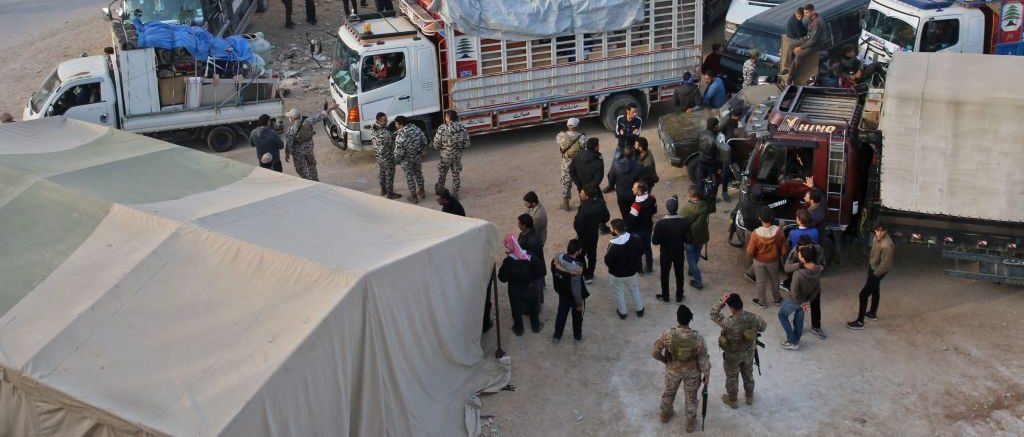The Danger of Deporting Syrians from Lebanon to Syria: A Call for Protection
the Lebanese Armed Forces have carried out a series of deportations, sending hundreds of Syrian refugees back to Syria. This alarming trend not only violates international legal obligations but also places the lives of these individuals at risk. The deportations come at a time when anti-refugee rhetoric is on the rise in Lebanon, creating a hostile environment for Syrians who have sought safety and shelter in the country.
Reports from various national and international organizations shed light on the discriminatory raids conducted by the Lebanese Armed Forces on the houses of Syrian refugees across different neighborhoods. Mount Lebanon, Jounieh, Qob Elias, and Bourj Hammoud are just a few of the areas targeted. Shockingly, most of those deported were registered or known to the United Nations High Commissioner for Refugees (UNHCR). This disregard for due process and the denial of their right to challenge deportation is deeply concerning.

The actions of the Lebanese authorities in forcibly deporting Syrian men, women, and children are inexcusable. Rather than addressing the economic crisis and implementing much-needed reforms, the authorities have resorted to scapegoating refugees for their own failures. It is unacceptable to forcefully remove individuals from their homes in the early hours of the morning and return them to the very government they fled from.
What makes matters worse is that these deportees are being handed directly to the Syrian authorities, despite the well-documented human rights abuses committed by the Bashar al-Assad regime. Countless testimonies have exposed the horrific violations carried out by Syrian military and security forces, including unlawful detention, torture, rape, enforced disappearance, and other forms of ill-treatment. The fate that awaits these deportees upon their return is nothing short of alarming.
The deportations are not the only coercive measures being employed to pressure Syrian refugees to return to Syria. Discriminatory measures imposed by several municipalities, such as curfews and housing restrictions, further isolate and marginalize the Syrian community. Some local authorities even demand personal information from Syrians and threaten deportation if they fail to comply. This coercive and hostile environment, coupled with rising anti-refugee rhetoric fueled by local authorities and politicians, has created an atmosphere of fear and panic among Syrian refugees in Lebanon.

Media outlets in Lebanon have also played a role in exacerbating tensions between host communities and refugees. The use of inflammatory language when referring to Syrians has contributed to an increase in violence and discrimination against refugees. Instead of protecting the rights of all individuals within the country, media outlets and political figures should strive to promote inclusivity and understanding.
Lebanon, as a party to the Convention Against Torture, is obligated to protect individuals from being returned to a situation where they face the risk of torture. Moreover, the principle of non-refoulement, a customary international law principle, prohibits the return of individuals to a place where they may face persecution or other serious human rights violations. By deporting Syrians to Syria, Lebanon is violating these fundamental principles.
Under Lebanese law, deportation orders can only be issued by a judicial authority or by the General Director of the General Security in exceptional cases and based on an individual assessment. It is crucial that Lebanon halts these summary deportations, adheres to the principle of non-refoulement, and ensures that due process is respected. Individuals at risk of deportation to Syria should be given the opportunity to consult with a lawyer, meet with the UNHCR, and present their case for protection in a competent court. Courts should prohibit any deportation that amounts to refoulement.
The international community also has a responsibility to fulfill its obligations. Increased assistance, particularly through resettlement and alternative pathways programs, is necessary to support Lebanon in managing the presence of approximately 1.5 million refugees within its


